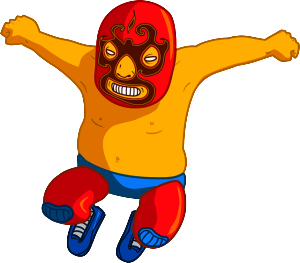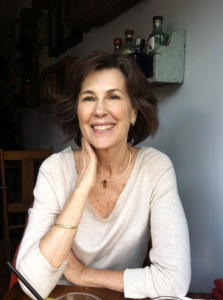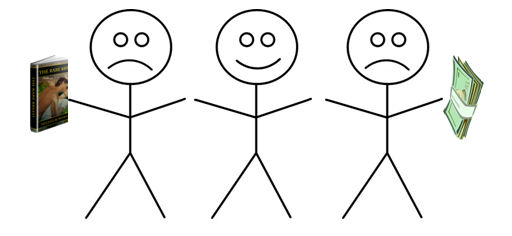 It appeared to be a dream-come-true for advocates of indie publishing. Those who follow Joe Konrath’s blog have seen him “fisk” statements from publishing insiders, tearing apart their public statements line by line. A frequent target for Konrath’s fisking has been novelist Scott Turow, until recently the President of the Authors Guild. Usually these were accompanied by an offer for Turow to respond, either on Konrath’s blog or in a public debate. Last Thursday (January 15, 2015) Intelligence Squared U.S. held a debate with Konrath and Turow as two of the four participants. Continue reading “Yes, Amazon Is the Reader’s Friend”
It appeared to be a dream-come-true for advocates of indie publishing. Those who follow Joe Konrath’s blog have seen him “fisk” statements from publishing insiders, tearing apart their public statements line by line. A frequent target for Konrath’s fisking has been novelist Scott Turow, until recently the President of the Authors Guild. Usually these were accompanied by an offer for Turow to respond, either on Konrath’s blog or in a public debate. Last Thursday (January 15, 2015) Intelligence Squared U.S. held a debate with Konrath and Turow as two of the four participants. Continue reading “Yes, Amazon Is the Reader’s Friend”
Tag: indie and traditional publishing
How I Went from Traditionally Published Author to Indie Author (With the Scars to Show for It)
 Guest Post
Guest Post
by Eileen Goudge
The term “traditionally published” took some getting used to when I first began hearing it. Back when my first novel, Garden of Lies, came out in 1986, there were two kinds of writers: published and unpublished. Those who were self-published didn’t count.
The digital revolution changed all that. In today’s world, not only is there no stigma to self-publishing, there’s valor in it. And money to be made. Statistics from two recent surveys on self-publishing show that indie authors dominate eBook bestseller lists by a whopping 54%. That’s more than all the traditionally published authors from the major houses combined! That said, I had to be dragged into the new reality even though my indicator lights were blinking, warning me I was in danger of being crushed by the old ways. My reluctance was understandable. Like an adult child living at home, I was spoiled. For my fifteen women’s fiction titles that were traditionally published, I’d had other people doing the work of bringing each book to the marketplace. I didn’t need to concern myself with pesky details such as editing, cover design, distribution, marketing strategy, and promotion. Continue reading “How I Went from Traditionally Published Author to Indie Author (With the Scars to Show for It)”
Agents: Got one? Need one?
In a lot of the book forums I frequent, I often see posts by newbies asking plaintively how one goes about getting an agent. The traditional publishing segment, of course, continues to bleat out its timeworn advice to writers: get an agent, get validated by being traditionally published. It’s interesting, isn’t it, that the only way to get “validated” is by doing things their way, playing by their rules? But that’s another post.

A much more interesting note is the fact that recently traditional publishers have found that combing through the growing ranks of indie writers is yielding a double bonus for them: these writers have already gambled on putting their voices out there and for some the public has responded positively. The traditional publishers are now taking a new look at the indie boom, since they’re finding (1) good books, already vetted by the public, with (2) a built-in following. The publishers are definitely seeing—and jumping on—the opportunities of the growing indie movement.
But the ones who are still dead-set against it? You got it. The agents, the very ones who are being marginalized by this new tete-a-tete. After all, if you can put your book out there, gather a following and possibly, eventually, get picked up by a traditional publisher, who needs an agent? Continue reading “Agents: Got one? Need one?”
I Have a Dream
 By the time this post posts, the 2012 Olympics will be only a smattering of sweat, endorsement deals, and a few medals Michael Phelps dropped on the way home. Among the standout performances, two American gymnasts in particular caught my attention. Not for their cute outfits, toothpaste smiles, and medal counts, but for what was (and wasn’t) said about them. Gabby Douglas is African American; Aly Raisman is Jewish. These are facts. Sure, there were a few easy comparisons and benchmarks, as American media likes to put everything in tidy, “newsworthy” categories. But I considered these strong young women as Olympians and stultifyingly talented, well-trained athletes first, before even thinking about their cultural and ethnic backgrounds.
By the time this post posts, the 2012 Olympics will be only a smattering of sweat, endorsement deals, and a few medals Michael Phelps dropped on the way home. Among the standout performances, two American gymnasts in particular caught my attention. Not for their cute outfits, toothpaste smiles, and medal counts, but for what was (and wasn’t) said about them. Gabby Douglas is African American; Aly Raisman is Jewish. These are facts. Sure, there were a few easy comparisons and benchmarks, as American media likes to put everything in tidy, “newsworthy” categories. But I considered these strong young women as Olympians and stultifyingly talented, well-trained athletes first, before even thinking about their cultural and ethnic backgrounds.
What the heck does this have to do with writing, you might ask? Continue reading “I Have a Dream”

